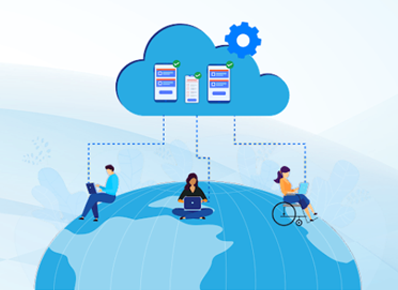What is a Device Farm?
A device farm refers to a cloud environment that enables teams of developers and testers to remotely test the performance of their software and mobile products on a large number of real devices anytime, anywhere. The concept of device farms is becoming increasingly important as more and more people use mobile devices as their primary means of accessing the internet.
Device farms allow developers to test their applications or websites on a wide range of devices and operating systems, without having to purchase and maintain all of those devices themselves. Instead, device farm services provide access to a large pool of devices that can be accessed remotely, either through a web-based interface or an API. Device farms have many advantages, including sparing developers the effort and cost of needing to acquire and maintain a large number of devices. They can test their websites or applications on gadgets they might not otherwise have access to, such as vintage or uncommon models. With the wide variety of devices and operating systems in the mobile market, this is particularly crucial.
There are several different types of device farm services available, each with its own strengths and weaknesses. A few of the benefits include:
- Performance Monitoring: Improve app quality by monitoring CPU and Memory utilization, including each device’s processes in real-time during testing sessions.
- Automation Testing: Remotely perform mobile app testing on devices through open-source frameworks.
- Macro Recording Support: Identify and replicate errors, automate UI testing, as well as perform iterative manual regression testing without the need to repeat them.
- Fast Device Enrollment: Within minutes, connect numerous devices from a contributor machine or a workplace device rack to a hub.
- Geographic Redundancy: It gives access to testing environments from any part of the world and any timezone, making it ideal for offshore development teams.
- Support for an Expanding Array of Devices: Most device farms offer access to both modern and legacy versions of operating systems and multiple device models and manufacturers, including outdated ones.
- Cost: It’s a substantially less expensive option than having a device lab on-site.
In addition to the actual devices themselves, device farm services often provide a range of tools and features to help developers manage their testing processes. For example, they may provide automated testing tools that can run a set of tests across multiple devices simultaneously. They may also offer reporting and analytics tools to help developers track the performance of their applications or websites across different devices and operating systems.
Conclusion
Device farms are becoming an increasingly important aspect of mobile application and website development. As the mobile market continues to grow and diversify, developers need to be able to test their products across a wide range of devices and operating systems. Device farm services provide a cost-effective and efficient way to do this, allowing developers to focus on creating great products instead of worrying about device compatibility.

